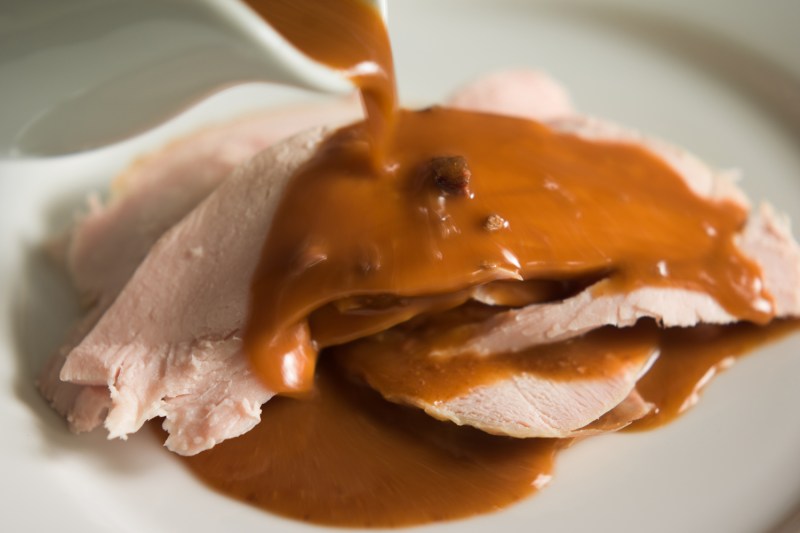When visiting the poultry section of a grocery store or market, turkey may not top the list of meal-planning choices. Although popular, turkey is still considered a dish that centers on major holiday season dinners such as Thanksgiving and Christmas. Despite this, it is often considered a good low-fat source of quality protein that should be consumed more often as part of a healthy, balanced diet.
So what is the truth about turkey — is turkey healthy? If so, what nutrients does it have? Are there any downsides to eating turkey, and how can turkey dishes be made healthier? Read on for a comprehensive guide on everything you should know about this poultry option.
What nutrients does turkey have?

Turkey is a good source of protein; It is low in fat and calories, making it a nutritious choice for those looking to maintain a healthy diet. It’s also rich in essential nutrients such as B complex vitamins, magnesium, selenium, zinc, potassium, phosphorus, and iron, all of which are needed by the body daily to remain healthy.
Is turkey considered healthy?

Turkey is considered healthy because it’s high in protein and low in fat and calories. This makes it an ideal food for those on a calorie-restricted diet. Furthermore, turkey is a positive food choice for active individuals who exercise frequently and need protein for muscle growth and repair.
Although turkey is known for its protein content, it is also considered a nutrient-heavy food. It is healthier than red meat, mostly because it’s low in saturated fat.
Like other protein-rich foods, turkey has a low glycemic index score. When eaten, it doesn’t spike blood sugar levels, making it suitable for diabetics to include in their diet.
Are there any downsides to eating turkey?

While turkey is a healthy meat option, it’s important to be mindful of the sodium content in processed turkey products such as deli meats, sausages, and bacon. Consuming too much sodium can increase the risk of high blood pressure and other health issues.
Turkey, in this form, often contains other additives such as chemical preservatives. The fat content also increases during the manufacturing of processed foods.
Tips for making turkey dishes healthier

Lowering fat content
Eating whole turkey as the main dish and not turkey products keeps the saturated fat content low. Fat can be further lowered by removing the cooked skin of a fresh turkey. Sticking to other low-saturated fat foods while eating a turkey dish will help maintain the benefits of this low-fat meat.
Seasoning
Turkey dishes often need some enhancement, and the easy option is to add salt. Too much sodium in the diet can cause health problems, such as hypertension, so being creative with herbs and spices can add more micronutrients, such as antioxidants, to a dish. Consider rosemary, bay leaf, parsley, and turmeric as flavorings.
Cooking method
The way food is cooked matters, and when it comes to turkey, the traditional way to prepare a whole bird is by baking it in the oven. This allows fats to flow out of the meat and into the base of the tray. Grilling cuts of turkey meat is also a healthy preparation option. It’s often tempting to fry turkey products such as sausages and bacon, but grilling these, too, can help reduce the fat content.
Side dishes
When turkey is consumed, it is often part of the main course. The health benefits of a turkey dinner can be boosted further by adding vegetables, such as parsnips and Brussels sprouts, sweet potatoes, and grains like quinoa to the main meal.
Frequently asked questions

Is turkey healthier than chicken?
Both turkey and chicken are excellent sources of lean protein, but turkey tends to be slightly lower in fat and calories. However, the nutritional differences between the two are minimal.
Is turkey the healthiest meat?
Turkey is considered one of the healthiest meat options due to its protein content and nutrient profile. However, the healthiest meat choice depends on individual dietary preferences and needs. Still, turkey is healthier than red meat, despite red meat containing more vitamin B12.
Is turkey healthy for weight loss?
Turkey can be beneficial as part of a weight loss diet due to its high protein content, which can help promote feelings of fullness and support fat burning. The high protein content of turkey means it doesn’t raise blood sugar levels rapidly when consumed. This helps keep those on a diet feeling fuller for longer, and turkey also has few calories.
What is the healthiest poultry to eat?
Turkey is a healthy poultry option, but other choices such as chicken, duck, and quail also offer nutritional benefits. However, turkey is one of the leanest meats, making it the healthiest poultry on the market and a great alternative to red meat.




